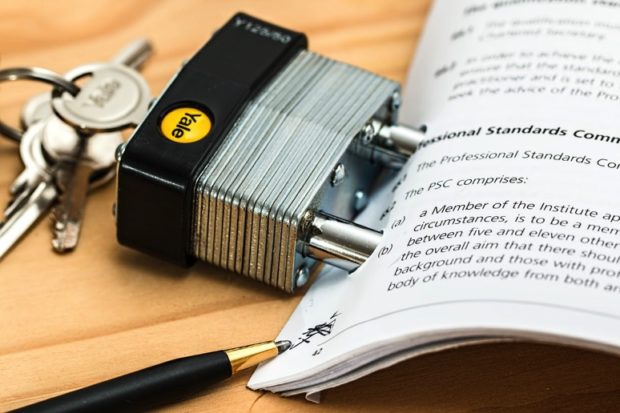When a contractor makes a mistake, there is always an urge to storm into the job site and let the contractor have it. However, that is not how to deal with contractor mistakes. Again, there is a strong urge to fire the contractor and sue them for damages they caused you. While firing and suing are ideal solutions, they will stall your project for a long time. Granted, you need to reflect on the steps you are about to take before you take them. Always think about what is best for your project – take measures that will ensure your project does not stall.
Read on to learn more.
How to Deal with Contractor Mistakes: 10 Strategies
Before you start wondering – does homeowners insurance cover contractor mistakes – start thinking about how your project will move forward. Use the strategies below:
Identify the Issue
The first step is to identify the contractor’s mistake and how it happened. Mistakes might involve wrong positioning of fixtures, added project costs, misuse of project materials, and shoddy work with loose accessories, among others. Before storming into the job site, ensure that you have ascertained that there really is a mistake. In some instances, the contractor might leave fixtures hanging on the wall to be fixed the day that follows – that doesn’t count as a mistake, but you will never know until you find out.

List The Objective Facts Of The Issue
Once you have identified contractor mistakes, say increased project costs, you need to collect facts and evidence of the accusation. If the contractor is doing something that is bloating the project budget, you need to obtain the evidence of what the contract is doing and how that is affecting the budget for your project. That, when you confront the contractor, you will not just vent out on them but have a candid discussion on the matter at hand.
Alert Only The People Who Can Help Resolve The Issue
Instead of calling on the contractor in a room full of subcontractors, you need to call the contractor or anyone else who can help solve the issue, aside. This gives the contractor a chance to correct their mistake without losing their authority over the subcontractors. Again, approaching the contractor with respect will help solve the issue fast and maybe get the contractor to own their mistake.
Approach The Contractor With A Level Head
Anger never solved any issue – if anything, anger will only exacerbate a problem. As such, you need to approach the contractor calmly and have them explain their mistake. This way, you will find out more about the error and find a way to correct it than when you and the contractor just throw words around. In some instances, the contractor might have realized their mistake and are in the process of rectifying it – if you go throwing words, you will only delay the project. You can learn more about how to negotiate on Procore Technologies.
Listen To Their Side Of The Matter
What does the contractor have to say about their mistake? Have they even realized they made a mistake? Before you pass blames, give the contractor a chance to comment on the error and let them come up with a solution on how to solve the issue. Contractors know more about building and constructions than you do – which is why you hired them in the first place. As such, giving them a chance to comment on their mistakes and correct them will work excellently for both of you.
Avoid Blaming Them, Even If It Is Their Fault
When you start passing blames around, you wound other peoples’ esteem, you also show disrespect for their professionalism. It might feel okay to blame someone for a mistake they did, but what is best for your project is to find a solution, not enmity. However, this might be challenging because mistakes in the construction end up with additional costs – whoever is at fault shoulders the additional costs. However, irrespective of who is at fault, the project needs to continue.
Work With The Contractor To Create A Plan For Resolving The Issue
Once the issue is resolved, and the contractor realizes there is a problem, you need to create a plan to get the project back on track and budget. If the mistake involves a shoddy job, parts that were not professionally done need to be redone as fast as possible, not to affect the project’s timeline and budget. Together you need to create new schedules, new terms, and additional items and put them in writing. Email a copy of the plan to the contractor and retain a copy. Again, come up with a date to reconvene and evaluate the plan.
Last Resort: Enforce The Legal Ramifications Of Your Contract
In instances where you cannot agree with the contractor, where the contractor makes a mistake but is rude, you need to check your contract and seek outside help. Though this is not how to deal with contractor mistakes, seeking legal advice will help you deal with a rude contractor who will not accept to correct their mistake. For starters, you can seek help from the contractor licensing board for a licensed contractor. If a contractor goes against the contract, they risk losing their license. In such a case, they would instead correct the mistake than have you report them to the licensing board.
You can also seek mediation and arbitration. Mediation is where a third party helps you negotiate the terms of the project moving forward. Arbitration, on the other hand, is still like meditation, but the terms of arbitration are legally binding.

Does Homeowners Insurance Cover Contractor Mistakes?
One way to deal with contractor mistake is to file an insurance claim – but most homeowners’ insurance coverage will not pay for contractor mistakes. However, most contractors are covered by their own insurance. Their insurance cover will pay for their mistakes. File a bond claim – ensure you have a copy of the contractor’s surety bond.
Conclusion
Before you sign a contract, ensure a contractor is licensed to operate in your state. This makes it easier for you to sue them if they make mistakes, then refuse to cooperate. You also need to know – does homeowners insurance cover contractor mistakes? This will help you know how to should the additional costs from the contractor’s mistakes.




